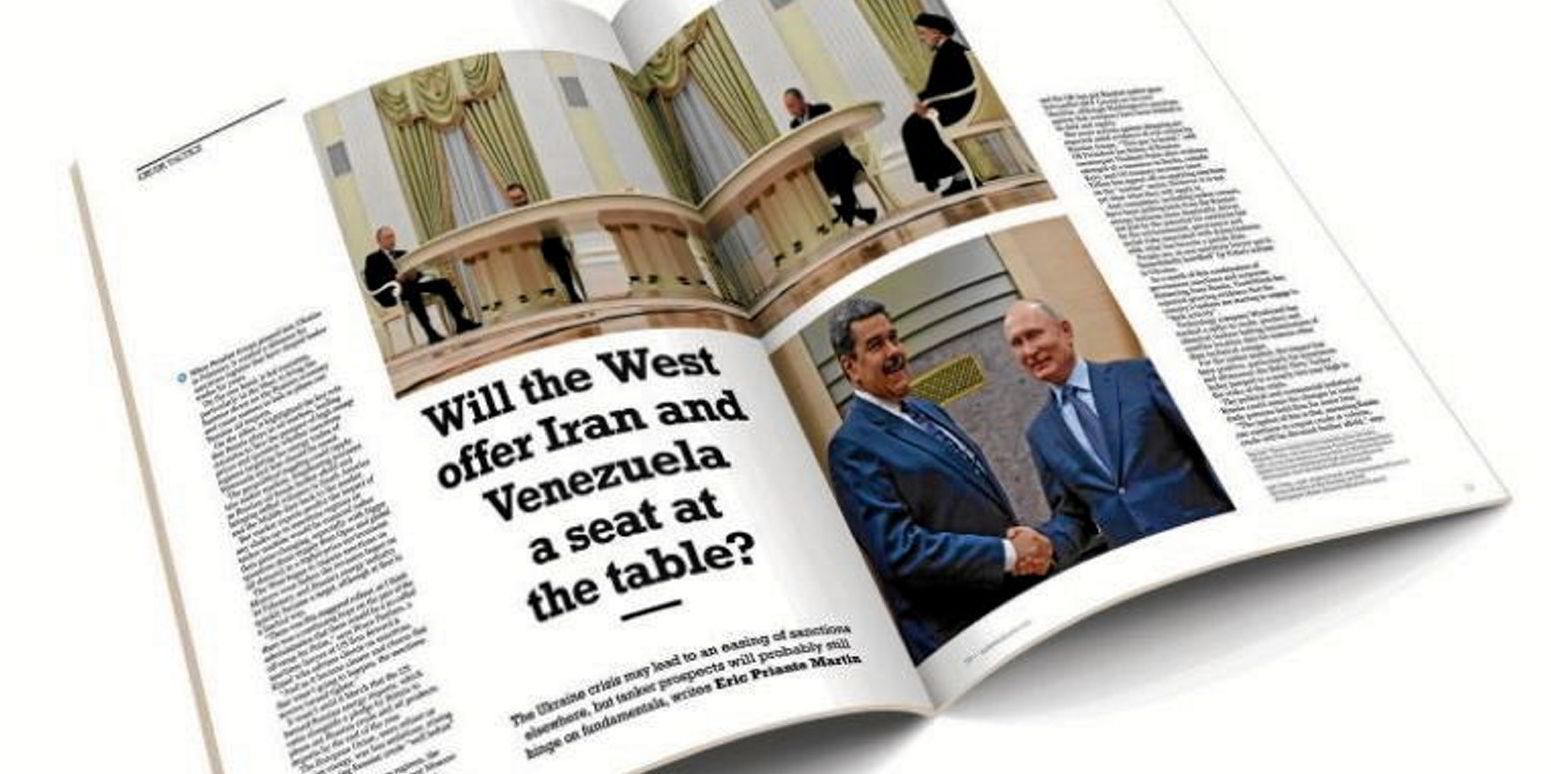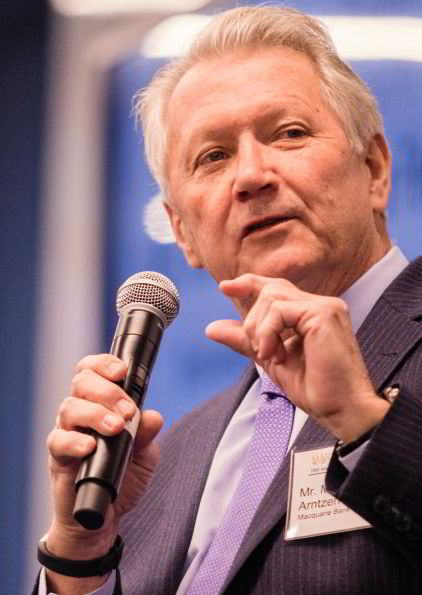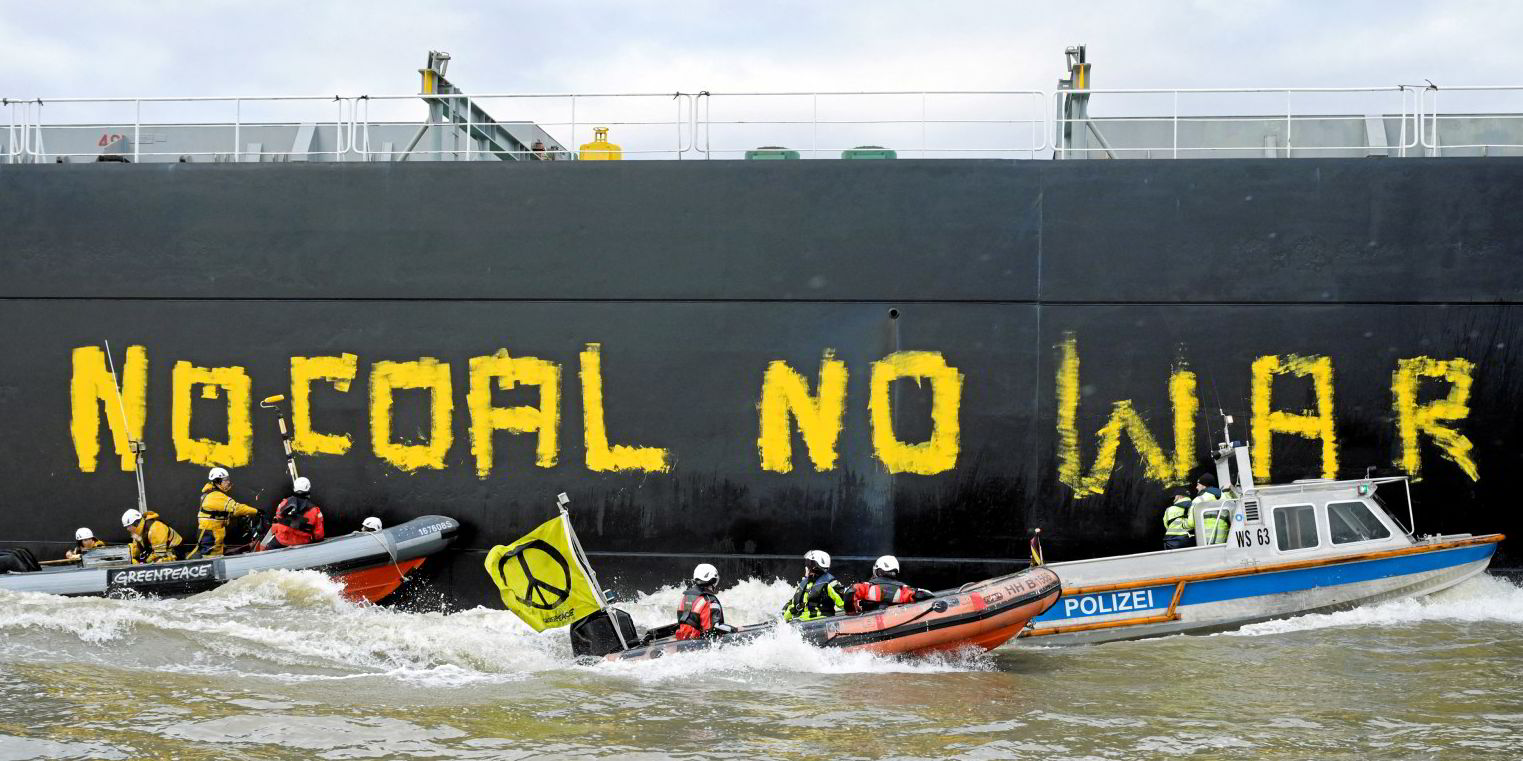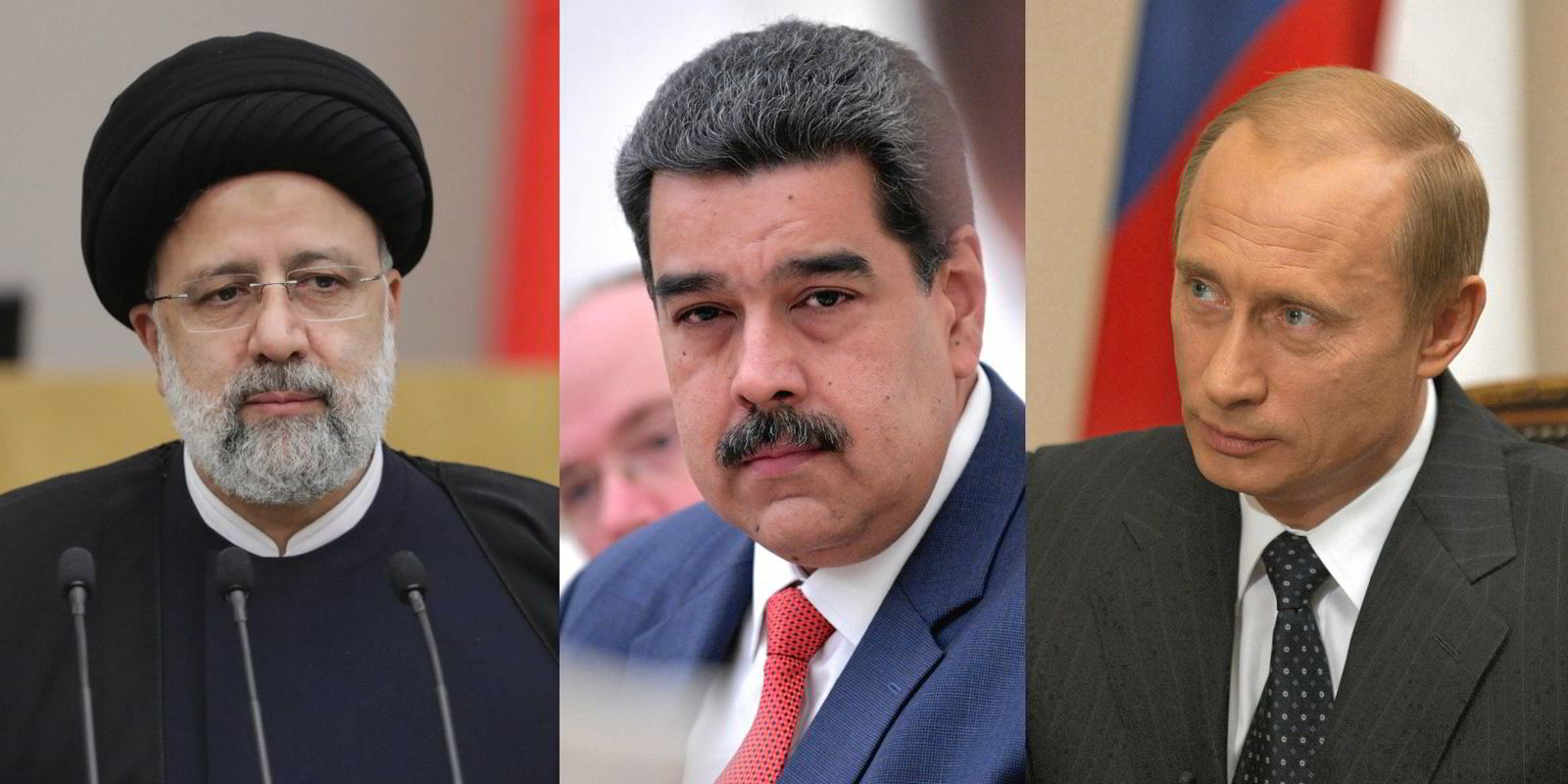The implications for ship finance in the aftermath of the Ukraine war are clear and at the same time anything but, depending on the time horizon and the shifting landscape of the conflict.
It is plain enough that lenders will adhere to financial sanctions imposed by the US and other Western nations vigorously and without exception, an array of experts tells TW+.

This story is part of a series in TW+ magazine on the wide-ranging impacts of the Russia-Ukraine conflict on shipping. Read the full stories when the magazine is published on 20 May.
But what happens from there on is far less certain.
“It’s too early to tell, but we are looking at this at the moment,” says a senior lender for a major shipping bank.
“Initially we have focused on the financial aspects, meaning what would happen financially to our risk party if their revenues from a project involving Russia would dry up.
“But looming in the shadows is the bigger question — will there be a ‘handicap’ in our committees for companies that have some exposure in Russia? It is surely being talked about in the higher-ups’ hallways.”
While the duration and breadth of the Russia-Ukraine strife is still in flux, it looks increasingly likely that the stain on Moscow’s reputation in the community of nations will be long-lasting.
“Even if Russia were to say tomorrow, ‘Hey, sorry about that’, it’s not like other nations are going to forget and forgive very quickly,” observes one equity analyst.
A significant school of thought holds that even where there are no sanctions, companies that choose to do business with Russia are likely to land on a ship finance blacklist not so different from the environmental, social and governance (ESG) protocols that have increasingly affected the industry.

In a climate in which companies are shunned for transporting fossil fuels, seating too many men on their boards or handing out related-party management fees, what might be the consequences of even indirectly funding the bombing of maternity hospitals and the slaughter of innocent civilians by the thousands?
“Just like ESG is entering KYC policy for credit customers, anyone doing business now with Russian companies is going to be part of the KYC process,” says longtime banker Morten Arntzen, using the finance shorthand for “know your customer” protocols.
“It’s coming very quickly,” says Arntzen, a senior advisor to Australian lender Macquarie. “It’s very much in line with the ESG process. But there are so many moving parts, I don’t think anyone has a complete grip on it yet.”
A similar view comes from Genco Shipping & Trading chief executive John Wobensmith, who previously had a career in lending.
“It’s early days and I don’t think banks are punishing any companies at this point — their deals have been made. But going forward, it will most likely become part of the all-encompassing ESG. I think banks will take a closer look at who they’re doing business with and who those companies are doing business with.”
Like others interviewed, Wobensmith says banks draw a bright line when it comes to sanctioned companies and activity. What becomes trickier is non-sanctioned business.

“With Europe banning Russian coal, that’s not a sanction, it’s a decision the EU has made. I think banks will look at that and roll that into their wider ESG conversation. It fits perfectly there. If you have a long-term contract to import Russian coal, that’s going to be a very difficult thing to finance, and rightfully so,” he says.
Genco, which owns dry tonnage between the handysize and capesize sectors, already has unilaterally determined to stop lifting Russian coal cargoes. “As soon as Putin stepped over the line,” Wobensmith says of the timing. “It was an easy decision to make.”
However, underscoring the complexity of the Ukraine fallout is what shipowners might decide about Russian wheat and corn cargoes once the high season for those commodities comes this summer.
“It would be historically unprecedented to put sanctions on agricultural products, but time will tell,” Wobensmith says. “You’ve got to feed people. The coal is a no-brainer. The grain is a little more tough.”

Still, not everyone is convinced that even non-sanctioned Russian exposure is about to become a new ESG category.
“It’s a difficult question to answer, given the vast uncertainty of the situation,” says Evercore ISI analyst Jonathan Chappell.
“I don’t think it’s relatable to the ESG movement because there is a lot of uncertainty on the duration of the conflict and what comes next. If trade with Russia is permanently banned, or self-sanctioned, there is a long-term risk to doing business in the country, but I’m not sure anyone knows exactly how this plays out.”
ESG, on the other hand, is “here to stay” in Chappell’s view, and will build in importance over time.
“Russia could prove to be more like the Cosco sanctions in late 2019. Or much, much worse. Or somewhere in between. I just don’t know. But as it relates to today, yeah, I think the capital markets would be effectively closed to any entity still doing business with [Russia],” he says.
One wild card mentioned by several financial sources is the uncertain place of Chinese lenders and lessors. It is assumed that the Chinese will have a friendlier view towards Russian business, given the alignment of interests between the two governments.
“I think there’s a wait-and-see attitude toward China,” Arntzen says. “You have some giant LNG projects that are supposed to get financed in Russia, and if you’re a Western bank, you can’t do those.
“My expectation is that China will take Russian oil well below market price and say they’re honouring long-term commitments. It may be similar with sale-leaseback deals on LNG carriers.”
However, Wobensmith is interested to see how willing European lenders will be to commit to financing alongside Chinese leasing companies, as has been a general practice.
“They may have a little bit different view now — as a general practice, I wonder if some of that is cut back.”






